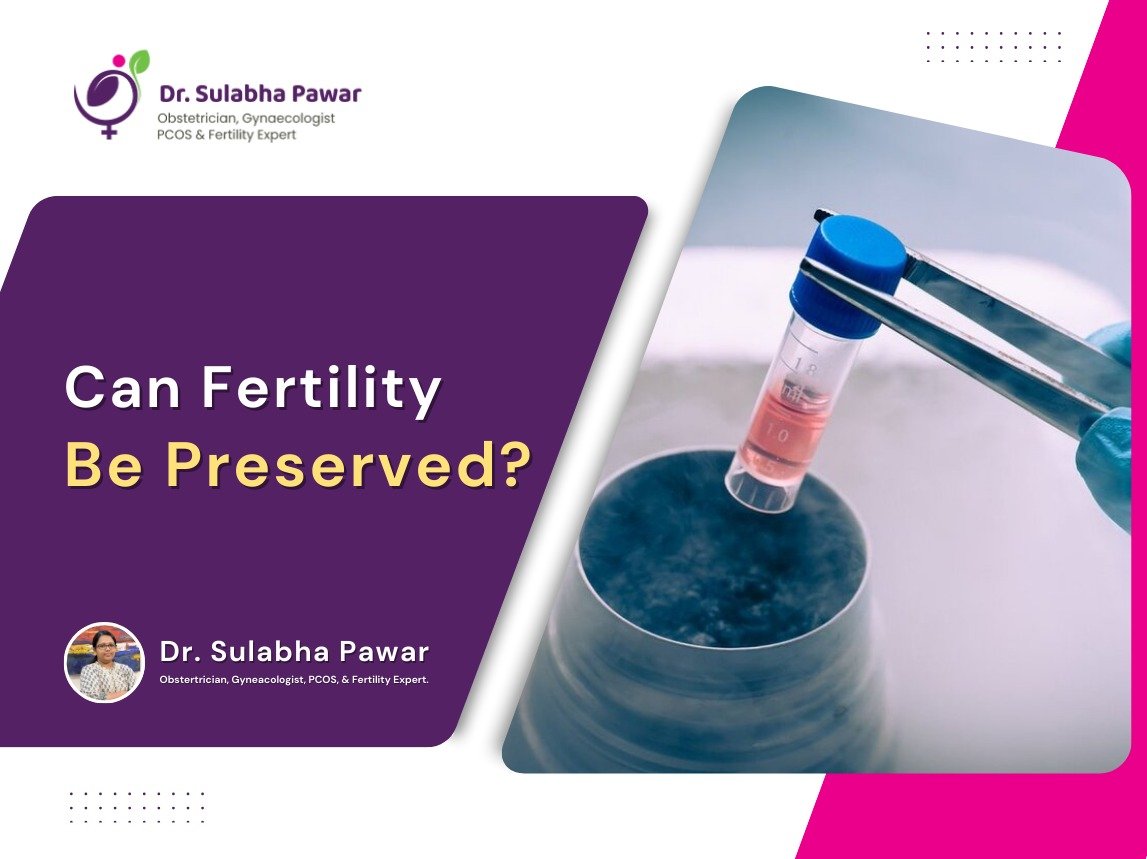Can Fertility Be Preserved? - Dr. Sulabha Pawar
Fertility preservation is a vital option for individuals who are planning for future family building but may face factors that could affect their fertility. It offers a way to safeguard reproductive health and ensure the possibility of having children later in life or after certain medical treatments. With advancements in medical science, fertility preservation techniques have become more accessible and effective, offering hope to those seeking to preserve their fertility.
What is Fertility Preservation?
Fertility preservation involves medical interventions designed to protect a person’s ability to have children in the future. The methods vary based on the individual’s health and circumstances, and they often focus on preserving eggs, sperm, or embryos. Fertility preservation can be especially crucial for individuals undergoing cancer treatments, women delaying motherhood for career or personal reasons, and those with conditions like endometriosis or polycystic ovary syndrome (PCOS) that may impact reproductive health.
Who Should Consider Fertility Preservation?
Several groups of people may benefit from fertility preservation:
- Cancer Patients: Cancer treatments like chemotherapy and radiation can significantly affect fertility, leading to infertility in both men and women. It’s crucial to discuss fertility preservation options before undergoing cancer treatment to protect future reproductive options.
- Women Delaying Parenthood: Many women are choosing to focus on their careers, travel, or personal growth before starting a family. As women age, fertility declines, and the quality of eggs reduces. Preserving eggs at a younger age can provide the option to conceive later in life.
- Individuals with Medical Conditions: Conditions such as endometriosis, PCOS, or early menopause may compromise fertility. Fertility preservation allows individuals with these conditions to safeguard their reproductive health.
- LGBTQ+ Individuals: For those undergoing gender-affirming treatments, fertility preservation can be an important step for ensuring future family-building options.
Fertility Preservation Options
- Egg Freezing: This involves the process of extracting eggs from a woman’s ovaries, freezing them, and storing them for future use. Once the individual is ready to have children, the eggs can be thawed, fertilized, and implanted through IVF.
- Sperm Freezing: Sperm freezing is often used for men who want to preserve their fertility before undergoing medical treatments like chemotherapy or radiation. Sperm is collected, frozen, and stored for later use in assisted reproduction.
- Embryo Freezing: In this process, both eggs and sperm are collected and fertilized in a laboratory. The resulting embryos are then frozen and stored for future use. This method is suitable for individuals or couples who are sure they want children together in the future.
- Ovarian Tissue Freezing: This involves removing and freezing ovarian tissue for women at risk of infertility due to medical treatments or certain conditions. This tissue can be transplanted back later, though it is less commonly used than other methods.
The Process of Egg and Sperm Freezing
Fertility preservation typically begins with an assessment of your health and reproductive system. For egg freezing, the process generally includes:
- Ovarian Stimulation: Hormonal treatments are used to stimulate the ovaries to produce multiple eggs in one cycle.
- Egg Retrieval: The mature eggs are then harvested in a minimally invasive surgical procedure.
- Freezing: The harvested eggs are frozen and stored until needed.
For sperm freezing, the process typically includes:
- Sperm Collection: Sperm is collected and analyzed for quality and quantity.
- Freezing and Storage: The sperm is then frozen and stored in a cryobank for future use.
How Long Can Frozen Eggs or Sperm Be Stored?
Both eggs and sperm can be stored for many years, often for decades, as cryopreservation techniques have advanced significantly. The longevity of storage depends on factors like age at the time of freezing and the method used. While fertility decreases with age, especially in women, freezing eggs at a younger age (typically in your 20s or early 30s) is associated with better success rates when it comes time for conception.
Success Rates of Fertility Preservation
Success rates for fertility preservation depend on various factors such as age, the quality of eggs or sperm, and the method used. Generally, younger individuals have higher success rates, as egg quality is optimal in the younger years. The likelihood of successful pregnancy after egg or sperm preservation can vary, but studies have shown promising outcomes with advanced techniques.
The Emotional and Financial Considerations
Fertility preservation can be emotionally and financially challenging, with the process being time-consuming and costly. It’s important for individuals to consider not only the medical aspects of fertility preservation but also the emotional impact it may have. Counseling and support are essential to help navigate the emotional journey of preserving fertility.
Conclusion
Fertility preservation offers hope and security for individuals who want to ensure their ability to have children in the future. With the right guidance and support, it’s possible to protect reproductive health and give yourself options when the time is right. If you’re considering fertility preservation, consult a fertility expert like Dr. Sulabha Pawar to explore the best options for you.




